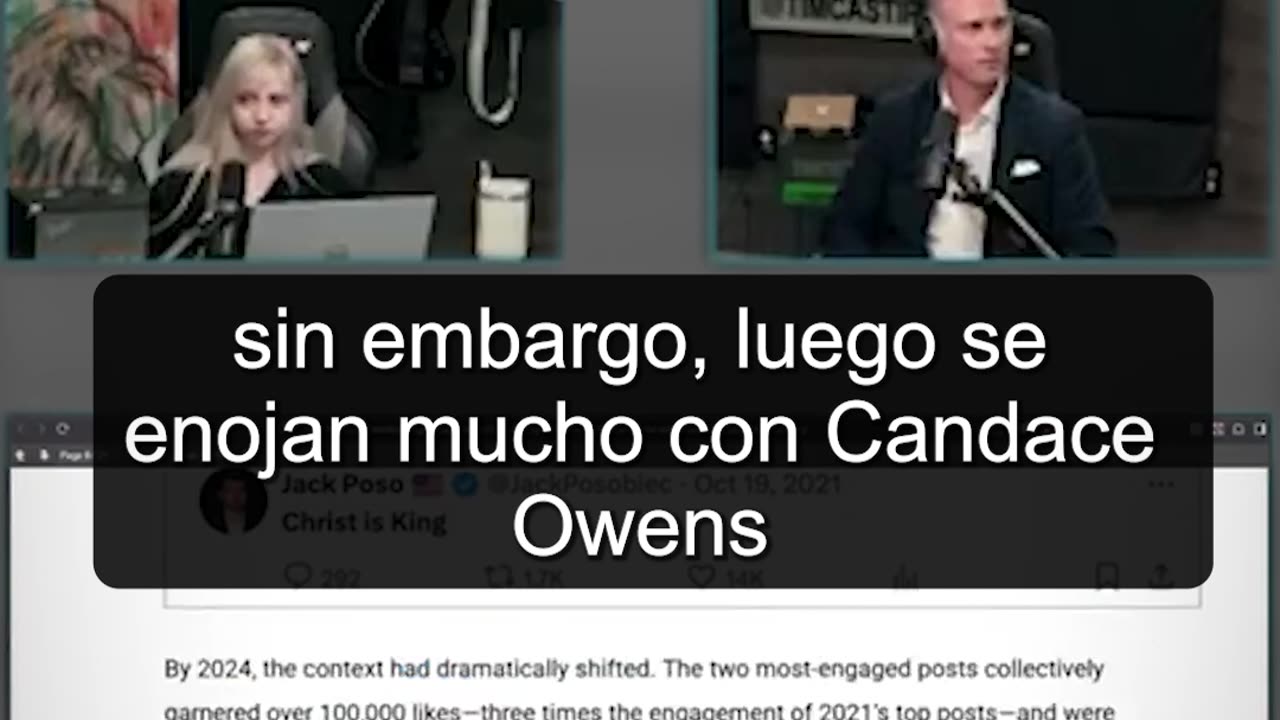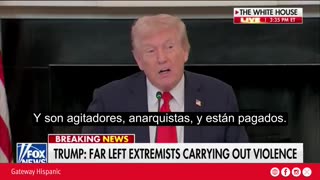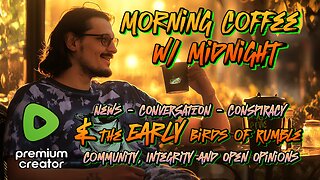Premium Only Content

Timcast breaks down the National Contagion Research Institute report on the phrase Christ is King
Timcast analyzes the National Contagion Research Institute report on the phrase "Christ is King"
Recently, Timcast broke down a 21-page report from the National Contagion Research Institute, which analyzes how a phrase so fundamental to the Christian faith, such as "Christ is King," has been hijacked by online extremists. The study examines the use of this religious statement by conservative and right-wing figures, who, according to the report, have adopted and popularized the phrase in a context that often transcends religion and enters the political arena.
The report specifically mentions several media personalities and conservative activists, such as Jack Posobiec, who used the phrase in 2021. Posobiec, known for his polarizing stance within the U.S. political discourse, shared the message "Christ is King" in an apolitical context, which resulted in a significant audience response, with over 34,000 "likes." Although some view him as a controversial figure due to his conservative activism, Posobiec used this phrase in its purest Christian context, free from fanaticism, without his posts reflecting any form of political extremism.
The National Contagion Research Institute's investigation points out how the phrase "Christ is King," which has historically been a hymn of the Christian faith, has been appropriated by individuals and movements with political agendas. This raises a series of questions about the legitimate use of a statement of faith and how it can be used to promote a message beyond religion. According to the report, the use of the phrase on online platforms, especially in conservative and right-wing circles, has created a link between the Christian faith and politics, which could influence public perceptions and the broader political debate.
However, the study does not limit itself to Jack Posobiec. It also criticizes the use of this phrase by prominent figures such as Candace Owens and Jake Shields. Both, known for their conservative views, have been the subject of controversy due to their adoption of the phrase "Christ is King," which, according to the report, has increased polarization around the phrase. While many conservatives see this expression as a return to traditional values, the report suggests that its use may have broader consequences, contributing to an even deeper divide in American society.
The report also explores the role the media plays in amplifying these messages, indicating how certain platforms may reinforce the association between the Christian faith and conservative political positions. In this context, the phrase "Christ is King" becomes a symbol of resistance against what some perceive as an attempt to silence religious faith in the public sphere.
However, some defend the use of the phrase as a legitimate act of religious expression, arguing that it should not be co-opted by any political ideology but should remain a universal affirmation of Christ's sovereignty over all aspects of life. According to this point of view, the use of the phrase by figures like Posobiec, Owens, or Shields is simply a reaffirmation of the Christian faith and its relevance in the modern world.
The controversy surrounding the phrase "Christ is King" highlights the growing cultural and religious struggle in the United States, where faith and politics are intricately intertwined. As online extremists continue to use religious symbols to further their agendas, society faces a dilemma about how to approach the intersection of religion, politics, and freedom of speech.
Ultimately, this report raises a critical question: Should the phrase "Christ is King" be allowed to be used as a tool of political propaganda, or should it remain a pure religious statement, free from the ideological interests of any group?
#ChristIsKing #Timcast #NCRIReport #ReligiousFreedom #Conservatism #Polarization #PoliticsAndFaith
-
 3:37
3:37
Gateway Hispanic
1 day agoPresident Trump hosts ANTIFA Roundtable with independent journalists
29 -
 11:08
11:08
It’s the Final Round
14 hours ago $1.32 earned💰NFL Week 6 Best Bets🔥Player Prop Picks, Parlays, Predictions FREE Today October 12th
5.98K3 -
 LIVE
LIVE
Reidboyy
23 hours agoCamo King Grinds 100% Completion for Battlefield 6 *SECRET* Mastery Camo (All Badges + Camos 100%)
71 watching -
 LIVE
LIVE
DynastyXL
2 hours ago👻 DYNASTYXL Presents: “What’s Your Favourite Scary POI?”
19 watching -
 29:03
29:03
itsSeanDaniel
2 days agoIllegal Migrants REVEAL How They're INVADING Europe 🇪🇺
21.9K21 -
 LIVE
LIVE
BBQPenguin_
3 hours agoIs Battlefield 6 worth Buying?
25 watching -
 8:08
8:08
MattMorseTV
18 hours ago $14.55 earnedThe USA - China TRADE WAR just went NUCLEAR.
28.5K60 -
 LIVE
LIVE
Seasickdruid
1 hour agoBattlefield 6 - Drops Enabled Over On Twitch - Watch the Druids Play
24 watching -
 LIVE
LIVE
Midnight In The Mountains™
47 minutes agoMorning Coffee w/ Midnight & The Early Birds of Rumble | Teachers send 3 million map w/ no Israel?
49 watching -
 20:22
20:22
Real Estate
8 days ago $8.77 earnedNumber 1 Indicator Home Prices ARE ABOUT TO CRASH
22.5K9